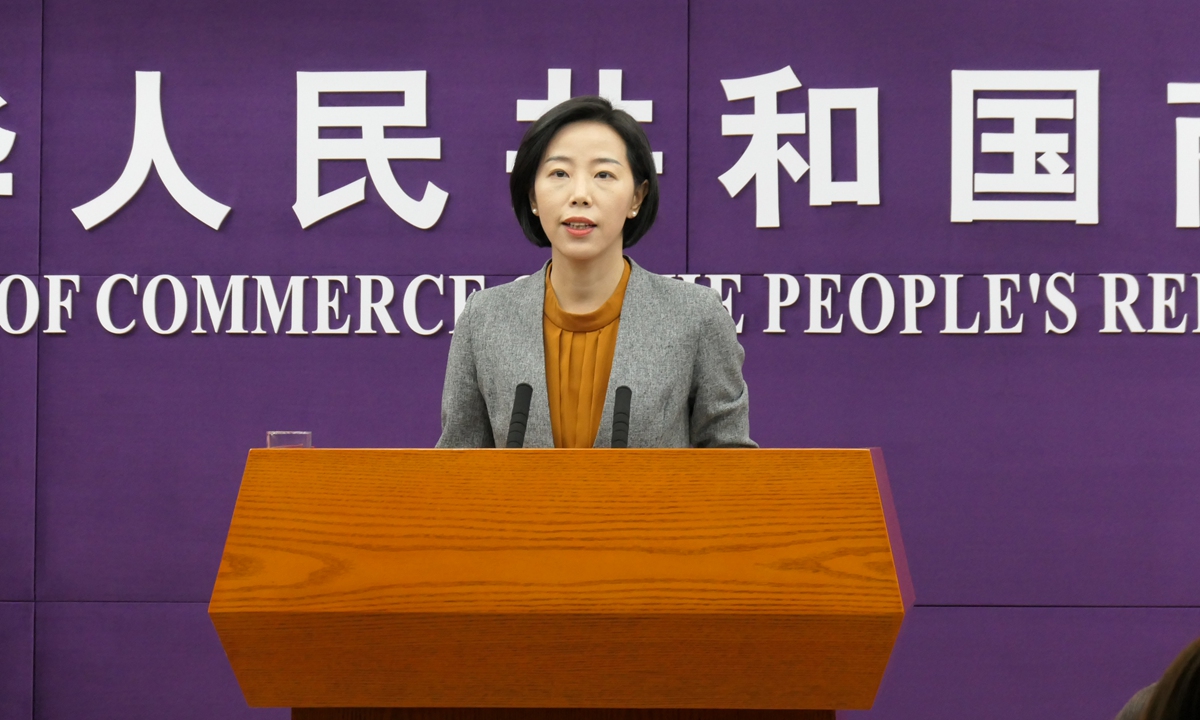Chinese official says German carmakers continue to expand investment in China, in a ‘vote of confidence’

Shu Jueting, spokesperson of China's Ministry of Commerce Photo: Tao Mingyang/GT
A spokesperson for China’s Ministry of Commerce (MOFCOM) said on Thursday that German carmakers continue to expand investment in China in both research and development and the new-energy vehicle (NEV) sector, in a “vote of confidence” in the Chinese market. Meanwhile, Chinese carmakers are also increasing investment and operations in Germany and other European countries.
The comments came as some German auto parts suppliers aim to increase their share of sales in the Chinese market, while some foreign media reports hype the declining German investment in China.
In the latest development, German auto supplier ZF Friedrichshafen recently said that sales in China are expected to account for 30 percent of the company's total sales by 2030, compared to 18 percent in 2022, according to Reuters. The company will also raise the share of sales from deliveries to Chinese carmakers that export globally, Reuters reported.
Asked to comment on the company’s plans at a press briefing in Beijing on Thursday, Shu Jueting, a spokesperson for the MOFCOM, said that the auto industry is the highlight and benchmark of China-Germany economic and trade cooperation, pointing to signs of close cooperation in the auto industry.
In the first 10 months of 2023, China’s imports of cars and auto parts from Germany reached nearly $20 billion, the biggest among China’s imports of German products and accounting for 21.9 percent of China’s total imports from Germany, according to Shu.
“Recently, many German carmakers have successively announced increased investment in research and development and in the NEV sector in China, which is a ‘vote of confidence’ in the Chinese market,” Shu told the press briefing, adding that Chinese carmakers are also expanding investment and operations in Germany and other European countries.
Shu further noted that China has become the world’s largest NEV market and a highland for industrial innovation, which will provide greater development opportunities for car companies and auto parts suppliers from various countries, including Germany.
“We also hope that all parties will work with China to adhere to the principle of openness and inclusiveness, deepen trade and investment cooperation, jointly promote the green and low-carbon transformation of the automobile industry, and make positive contributions to addressing global climate change and world economic recovery,” Shu said.
Despite growing cooperation between China and Germany, some in Germany and the EU are actively hyping politically motivated “China threat” or “China risk” claims, and calling for “de-risking” from China. The EU, for instance, launched a so-called anti-subsidy investigation into Chinese NEVs in October.
Meanwhile, some European media outlets are also hyping the declining German investment in China. Citing a German media report, Radio France Internationale on Thursday reported that Germany’s investment in China dropped to a six-year low in the first three quarters, with a negative flow of 2.2 billion euros ($2.4 billion).
While there is no Chinese official data to confirm that, German firms, especially auto companies, have recently announced a slew of investments in China. Last month, BMW Brilliance Automotive and Mercedes-Benz Group China announced a deal to set up a 50:50 joint venture in China to build a high-power charging network.
